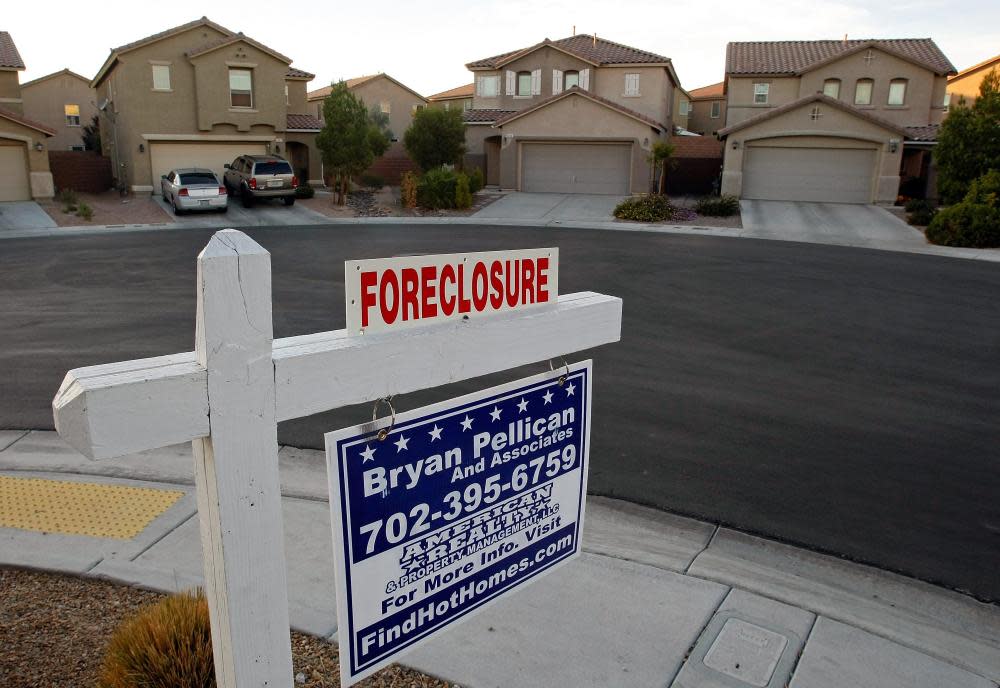Is online advertising about to crash, just like the property market did in 2008?

Here’s a disturbing thought for those of us who are critics of the tech industry: are we unduly credulous about the capabilities of the technology as extolled by the companies and their paid evangelists? Did clever exploitation of social media really lead to the election of Trump and the Brexit vote in 2016, for example?
At one level, the answer to that has to be “no”. Social media obviously played some role in those political earthquakes, but anyone who attributes seismic shocks on that scale just to tech companies hasn’t been paying attention to what’s been happening to democratic countries since the 1970s. Nor have they been reading the political science literature. Nevertheless, the drumbeat of angst about what networked technology and surveillance capitalism are doing to society continues to reverberate.
Here and there, though, there are interesting indications of a rethinking of the presumed omnipotence of tech. A prime example is a really nice essay, You’re Doing It Wrong: Notes on Criticism and Technology Hype, by Lee Vinsel, a professor at Virginia Tech, who has become annoyed by tech criticism that paradoxically inflates hype. “The media landscape,” he writes, “is full of dramatic claims… [by boosters] about how new technologies… will lead to massive societal shifts in the near future.” But misguided critics, he argues, then “invert” boosters’ messages by retaining the scenarios of radical change but focusing instead on downsides and risks. “It’s as if,” he writes, “they take press releases from startups and cover them with hellscapes.”
Vinsel points to a thought-provoking piece in Scientific American by the veteran science writer John Horgan in which he argues that debates about whether to “improve” our mind and body often exaggerate the feasibility of doing so. The problem arises, he writes, “when pundits concerned about possible social and ethical downsides of a technology exaggerate its technical feasibility”. This happens in discussions of potentially revolutionary technologies “that might, in principle (that wonderful, all-purpose fudge factor), boost our cognitive and physiological abilities. Warnings about what we should do often exaggerate what we can do.”
At one level, you might think that these are really just philosophical problems, but an interesting new book by Tim Hwang – Subprime Attention Crisis: Advertising and the Time Bomb at the Heart of the Internet – suggests that succumbing to tech hype might have more serious consequences than we had supposed. Hwang argues that digital advertising, the core business model of the web, is at risk of collapsing and that its potential demise bears an uncanny resemblance to the housing crisis of 2008. Evidence he cites includes the unreliability of advertising numbers, the unregulated automation of advertising bidding wars and the fact that online ads mostly fail to work. The link with the 2008 banking crisis is that in the current online economy the value of consumers’ attention is wildly overestimated, much as sub-prime mortgages were in the years leading up to 2008. If online advertising were to implode, Hwang maintains, the web and its “free” services would suddenly be accessible only to those who can afford them.
Implausible? Not necessarily. One of the most interesting developments of the past year or so was the revelation that serious outfits such as the UK Competition and Markets Authority were launching major investigations into the hidden, high-speed advertising auctions run by the social media platforms. This suggests that there’s something rotten in there: the claims of the companies about the effectiveness of targeted advertising are, basically, too good to be true.
If so, then we are mugs to take them at their face value. And it’s time to call their bluff. Which is exactly what Sinead Boucher, the CEO of Stuff, New Zealand’s leading online news and media site, did. In March 2019, she decided to stop advertising on Facebook, a move that her peers regarded as crazy. “That action had zero effect on our traffic,” she told a seminar at the Reuters Institute in Oxford. “We were prepared for a drop in our audience but it had zero effect. It made us realise we should think more about our decisions, instead of buying into the idea that you have to work with all the social media platforms.”
Yep. And maybe the social media emperor has fewer clothes than we imagined.
What I’ve been reading
Eco worriers
Frontiers in Conservation Science has published Underestimating the Challenges of Avoiding a Ghastly Future, a sobering article even for those who are sceptical about humanity’s capacity to avoid the coming catastrophe.
Things to come
Martin Rees has written Some Thoughts on 2050 and Beyond, in the Proceedings of the American Philosophical Society, the long view from one of the wisest people I know.
Power points
The Boston Review’s Coronapolitics From the Reichstag to the Capitol is a bracing look by William Callison and Quinn Slobodian at events in the US against the backdrop of conspiracy theories in Germany.

 Yahoo News
Yahoo News 
